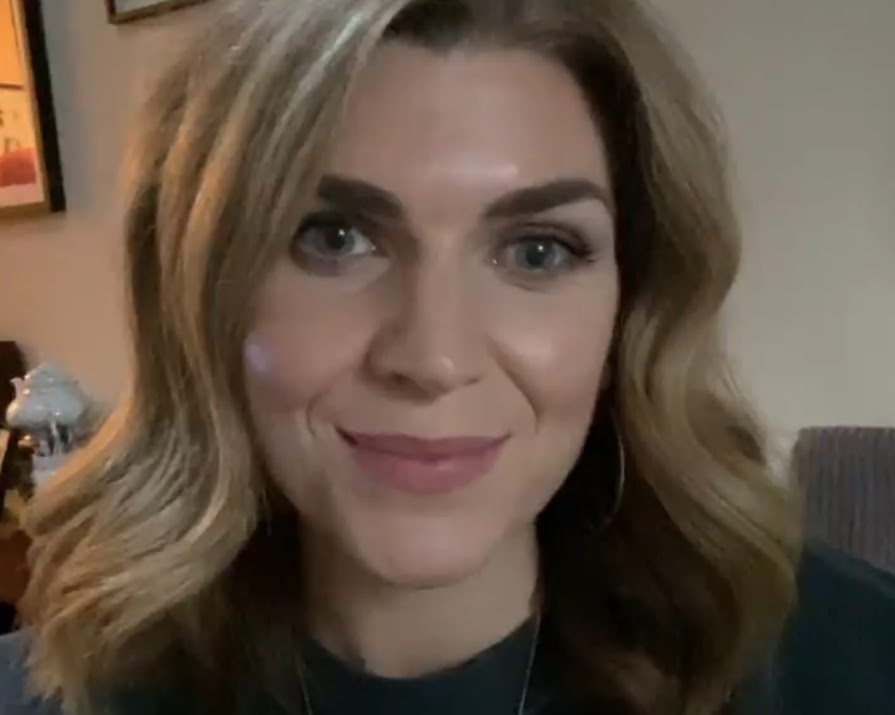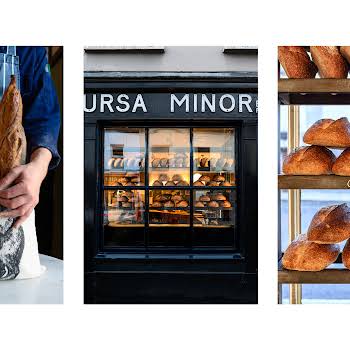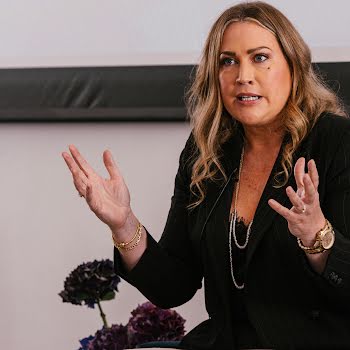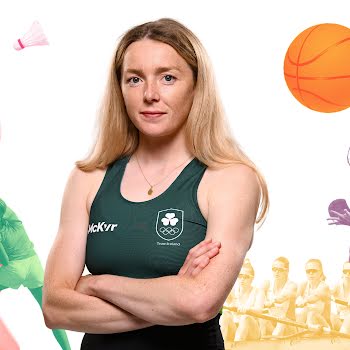
Unsolicited sexts: ‘Why should we stay silent over the unacceptable actions of others?’
Broadcaster Muireann O'Connell has had enough. After continually receiving unsolicited sexually explicit messages on social media, she’s urging us all to name and shame, or “call out the creeps”.
Co-host of Virgin Media’s Six O’Clock Show Muireann O’Connell said the avoidance of her DM’s started a few years ago. Right from when she joined Instagram, it started.
“Initially, there were a few very small cohorts sending me dick pics. And I just said, I don’t like this, so I’m not going to open that message. I don’t need this in my head. But every once in a while, you do have to pop in and invariably, I would end up clicking into some of these messages. They usually start off fairly innocuous, but can quickly turn very sexual and wholly inappropriate.”
One of the darkest facets of online and social media is undoubtedly the rise of the sending of unsolicited sexual images. I say rise because almost every woman I know has been on the receiving end of them (especially during the pandemic), yet no formal studies have been done in Ireland to collegiate official data.
Muireann said she actually began publicly calling out these accounts years ago. “A couple of years ago, there was this one person that kept on sending me dick pics. He was very erratic. It would be like, ‘Go fuck yourself, you whore, don’t show anyone these messages.’ And then straight after he would say, ‘Hey, how are you, why aren’t you responding to these messages?!’ I just clicked into this one day, and there had been loads of messages like this, and I’d think, are you kidding me?
“So then I publically put his profile up with his handle, because I just thought, why am I sitting here doing nothing? Why is any person and I mean, of any gender, any persuasion, sitting there feeling gross and disgusting over someone else’s actions? And once I pulled that off, he stopped, and a couple of other people stopped too.
“And then, for some reason, a couple of weeks ago, I popped in and there was one guy doing similar, and I said, gross, I’m not doing this again.” With that, she decided to Call Out The Creeps and encouraged everyone to do the same.
Blurred lines
Throughout our conversation, we repeatedly talk of the blurring of online life versus reality – and how some seem to think inappropriate behaviour is acceptable in the digital world when the same lines would rarely be crossed in real life. She agrees “there are those that don’t know if their behaviour is even wrong.”
“There were a few messages from people saying things like, ‘Listen, I don’t know if I’m being creepy towards you. I really hope that I’m not.’ Because some people genuinely don’t know if their behaviour is acceptable or not,” she continued. “It’s all so strange. When you click into some of these people’s profiles, and they’re with their kids and their wives and they don’t know why it’s wrong to be sending this kind of message to a stranger.”
“Why are you sending me these messages? How do you not know that it’s wrong for you to do this? With social media, I think those lines are blurred, because it is an online space, and not in the real world.”
Sarah Benson, CEO of Women’s Aid agrees that certain behaviour has been normalised online which would be considered criminal in a real-life setting – and that this aspect alone is highly alarming.
“I think we would be really concerned firstly, that the kinds of behaviour which are actually criminalised in person, which would be referred to as Flashing, which is considered sexually abusive behaviour, has become almost normalised on places like online dating apps. And when we normalise this, it can become trivialised.”
There has been, she says, substantial research to show that something like Flashing is a very serious red flag in respect to leading on to more serious forms of sexual assault, so it begs the question as to why a digital variation of this behaviour is seen by some as acceptable.
And it doesn’t always have to be a sexualised image, either. “It can be very sexualised text you might receive,” Sarah explains. “So that can be sexually threatening in some cases, or the sort of benign conversations, or chat, that quickly can go into highly sexualised territory. And this would be based on my conversations with women, who say at best, these messages can be irritating, but more so, they are unnerving.
“In some cases, they can be genuinely frightening. And if you have somebody who perhaps has already experienced some form of sexual intimidation or abuse, that can be genuinely traumatising.”
It comes back to she says, online versus real-life behaviour and boundaries within both.
“Because there is this presumption, this entitlement, that it’s okay to reach out to somebody, in some cases who you’ve never met before, and send these messages, with no consideration of how they might be received.
“But if you transpose it into an in-person situation, and you’re sitting at a cafe, and you start a conversation with somebody, and within about four sentences, it devolves down to something about how they physically look and what you would like to do to them, when on earth would that be considered appropriate?
“Why are we holding behaviour on social media to a different standard, a lower standard than what we would actually say is appropriate, respectful human contact in any other scenario?”
Coco’s Law
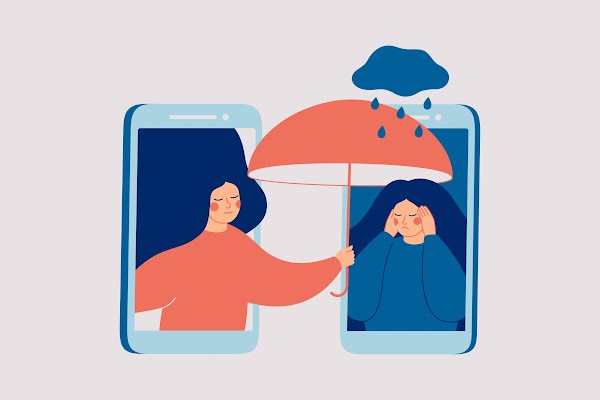
Last year, The Harassment, Harmful Communications and Related Offences Act 2020, known as Coco’s Law, named after Irish woman Nicole Fox – affectionately known as “Coco” by her loving family – who tragically died at just 21-years-old – was made part of the Irish legislation.
The law bans cyberbullying, stalking and sharing intimate images online without consent, and regardless of the sending of unsolicited sexual images – often, but not always, via anonymous accounts – still remaining a huge problem, it’s legislation that does offer some protection when it comes to tackling some forms of online abuse.
There is a range of supports available for those feeling distressed, Sarah adds, and they should be utilised because while just ignoring the messages does work for some, we should not feel we can’t take action against them.
Women’s Aid is one and also Too Into You which is aimed at younger women aged 18 to 25 but “all of the advice is good as a gender-neutral portal for anybody who’s receiving that kind of harassment. We have some guides on trying to maintain digital safety in terms of reporting mechanisms, and ways to block on different sides and so on.”
“At the end of the day, it’s someone saying, ‘Oh, I can make this person feel uncomfortable. And I’ve got the power in this situation.’ Because of course, you do when you’re the one sending the photos and messages,” Muireann continues.
“It’s not just a sexual issue, it’s about control. As a woman, I know this isn’t just a female issue and I can only speak as a woman, but I have to worry about how my actions resulting in someone else’s actions, can affect things, or whether I might have kicked off the wrong person. And they could take it to the next level.”
“But also, I think it’s anyone who is fair game now. If you’re online, you’re open to that, but it doesn’t mean we have to be silent about it! Because I just think, if I’m going to live in that state of fear of pushing the wrong button for someone, then it should be a collective thing that we all feel comfortable enough to say, ‘No, I’m not accepting that.’”
If you’re affected by this issue, for support, you can reach out to:
Women’s Aid (who offer 24/7 support)











